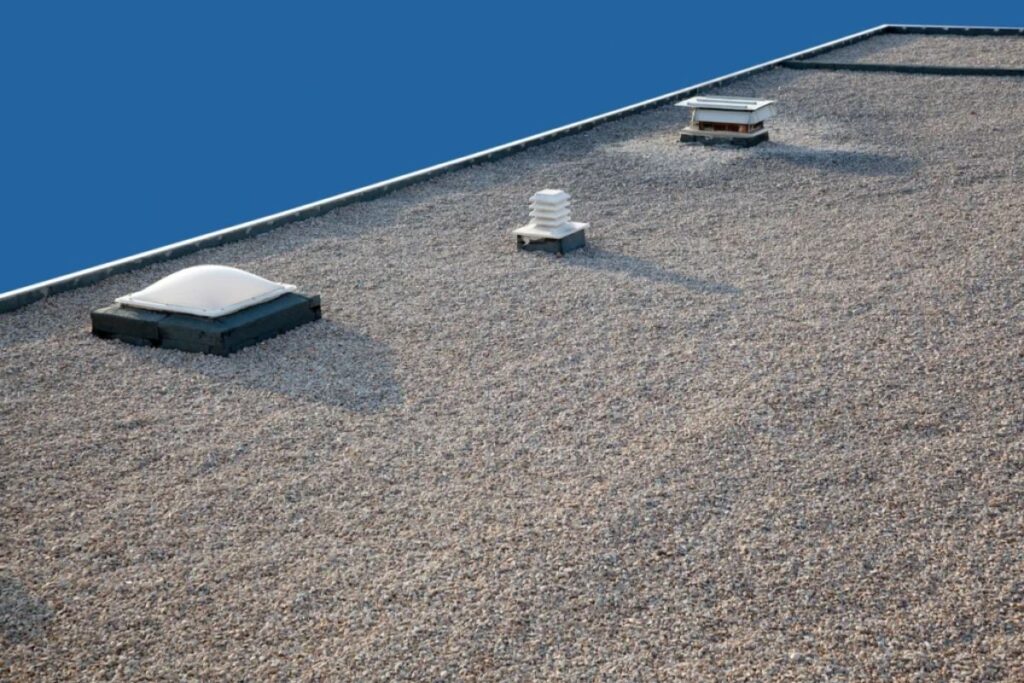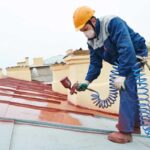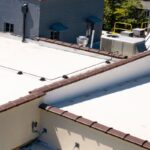Hello friends, If you own or manage a commercial property, then you know how important it is to make smart investments. One area you shouldn’t overlook is your roofing. Flat roofs are very common on commercial buildings, and choosing the right flat roofing material can save you a lot of money, offer better protection, and even add value to your property. So today, let’s take a detailed look at what flat roofs are made of, and the pros and cons of each material.
Before we dive into the types of flat roofing materials, here are a few things to keep in mind:
Things to Consider Before Choosing a Flat Roofing Material
Durability
Different materials have different strengths. While most roofing products are made to be durable, their actual performance depends heavily on both the material and the quality of installation.
Cost
Your roofing contractor may suggest materials in different price ranges. While discounted options may seem attractive, they don’t always perform as well or last as long as premium materials. It’s good to trust your contractor’s experience, but knowing what the materials are made of gives you better control over your investment.
Lifespan
Even the strongest materials can fail early if not installed properly or if they’re exposed to harsh conditions. Knowing the expected lifespan of a material can help you plan better.
Now let’s break down what flat roofs are made of. Here are seven popular flat roofing materials:
What Are Flat Roofs Made Of?
| Material | Lifespan | Cost per Sq. Ft. | Key Features |
|---|---|---|---|
| EPDM (Rubber) | 20-30 years | $0.80 | Eco-friendly, affordable, easy to install |
| TPO | 20-30 years | $5 – $6 | Fire-retardant, reflective, airtight insulation |
| PVC | 20-30 years | $6 – $9.5 | Strongest membrane, high weight capacity |
| Metal | 30-50 years | $15 – $60 | Long-lasting, lightweight, easy to repair |
| Tar and Gravel | 20-40 years | ~$4 | Excellent insulation, traditional, durable |
| Roofing Felt | Up to 20 years | $0.38 | Affordable, weather-resistant |
| Asphalt | Up to 50 years | $2.50 – $4 | Super durable, easy to repair |
1. EPDM (Rubber Roofing)
This is one of the most recommended flat roofing materials. EPDM is made from recycled rubber, sawdust, and slate dust. It is strong, affordable, and eco-friendly.
- Pros: Low cost, good insulation, UV resistant, mold-resistant
- Cons: Vulnerable to punctures if not handled properly
2. TPO (Thermoplastic Olefin)
TPO combines the base properties of EPDM with polypropylene. It’s thicker and more durable but also more expensive.
- Pros: Fire-retardant, strong insulation, good lifespan
- Cons: Varies in quality between manufacturers
3. PVC (Polyvinyl Chloride)
PVC roofing is considered the toughest of all flat roofing materials. It can hold a lot of weight and is fire-resistant.
- Pros: Great for buildings with HVAC units, airtight, UV-reflective
- Cons: Higher cost makes it less attractive to some property owners
4. Metal Roofing
Metal roofing isn’t just for sloped roofs or warehouses. It can also be used for flat roofs.
- Pros: Lightweight, UV reflective, fire-resistant, long lifespan
- Cons: Expensive, can be noisy during storms
5. Tar and Gravel
This is one of the oldest types of flat roofing systems. Layers of waterproof materials are held together with hot tar and topped with gravel.
- Pros: Affordable, durable, good insulation
- Cons: Heavy, smelly during installation, harder to find repair materials
6. Roofing Felt (Modified Bitumen)
Modified bitumen or roofing felt is known for its affordability and decent performance.
- Pros: Cheap, weather-resistant
- Cons: Not as strong or long-lasting as other options
7. Asphalt
Asphalt is often used in roads and parking lots, but it can be used on roofs too.
- Pros: Extremely durable, up to 50 years lifespan
- Cons: Heavy, may require structural support changes
Read More: The Impact of Roof Color on Home Temperature and Energy Bills
Final Thoughts
Choosing the right flat roofing material can save you a lot of money in the long run. It’s not just about picking the most expensive one; it’s about finding the right fit for your building, your budget, and your long-term goals. So when you’re talking to your roofing contractor, remember to ask them about these options and see what they’re most confident in installing.
A good installation is just as important as the material itself. So always hire experienced professionals who know how to install the specific roofing type you choose.
Stay informed, make smart choices, and your roof will reward you with years of solid protection.
Thanks for reading!



